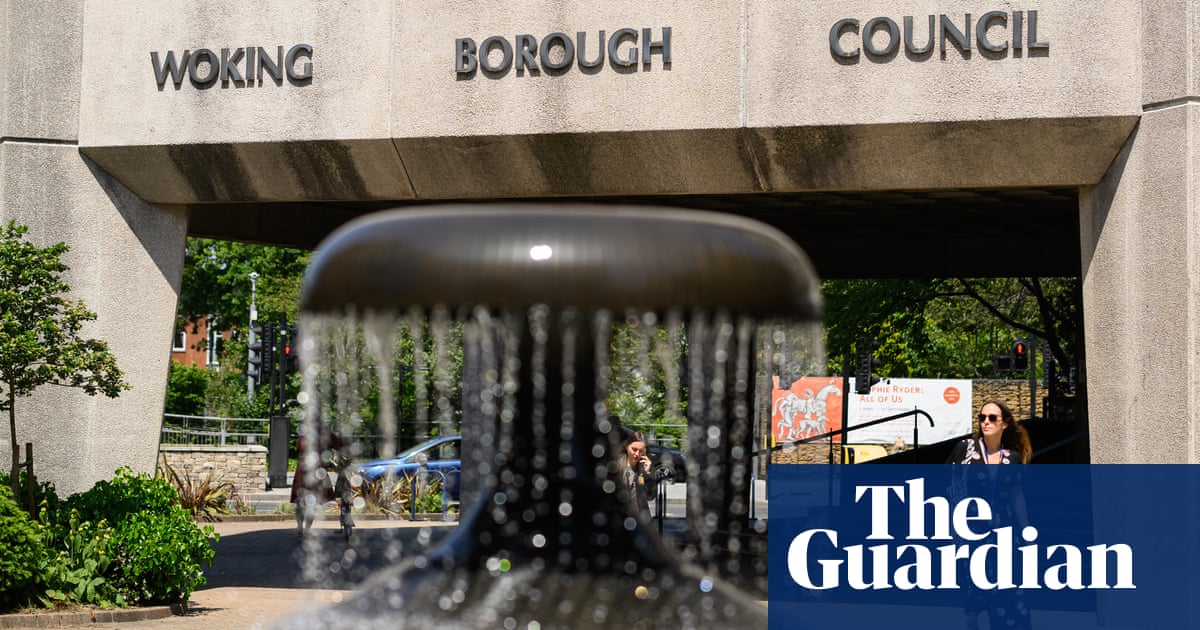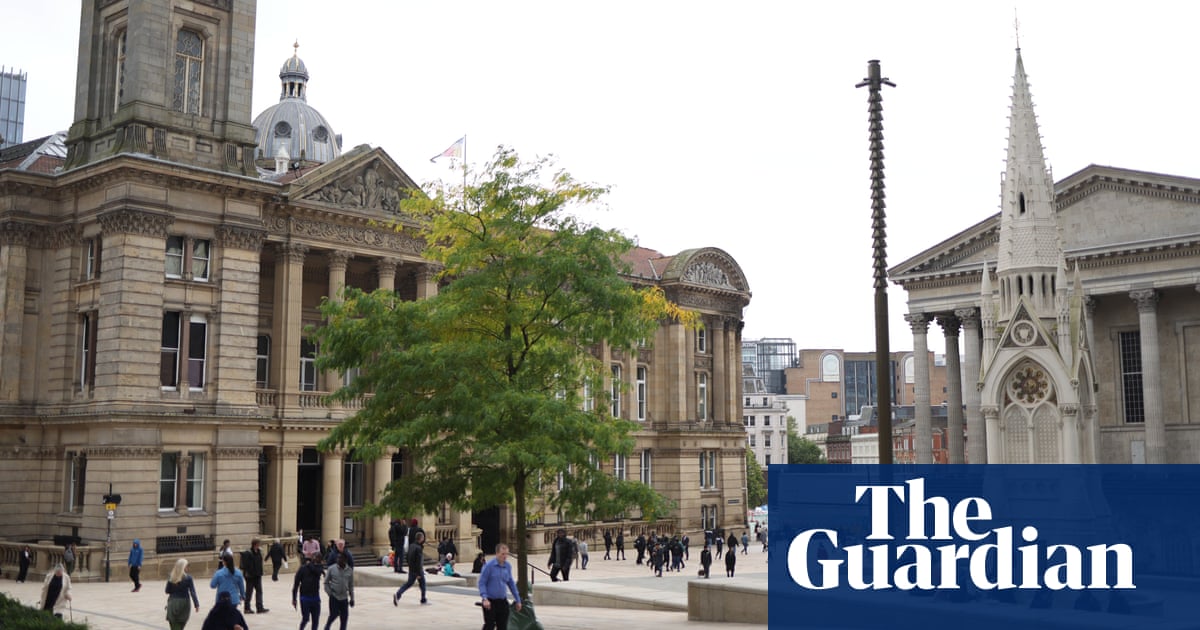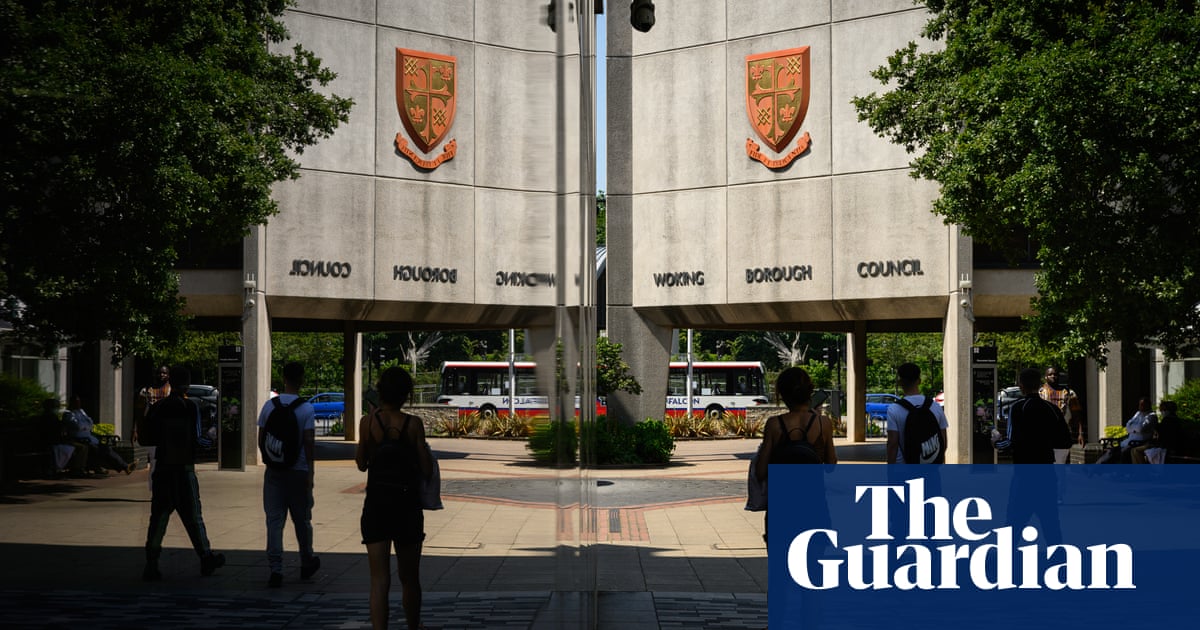
At least 26 councils in some of Britain’s most deprived areas are at risk of effective bankruptcy within the next two years, according to a leading local government group, which says many authorities simply have “nothing left”.
Britain’s local government network has been shaken by a string of financial collapses in the past two years, starting with Slough and followed by Croydon, Thurrock and most recently Woking, which announced a deficit of £1.2bn in June after a risky investment spree.
The quartet could be only the tip of the iceberg, according to a survey of 47 councils in northern England, the Midlands and on the south coast, which revealed mounting anxiety that rising costs will blow irreparable holes in budgets that fund crucial local services.
Five members of the Special Interest Group of Municipal Authorities (Sigoma) – a collective of 47 urban councils – said they were in such dire financial straits that they were considering issuing a notice of their inability to balance their annual budget for 2023-24.
A further nine Sigoma members said they may have to in effect declare bankruptcy next year. The group called on the government to provide additional funding to local authorities struggling to manage.
A spokesperson for the government said it had already agreed extra funding, adding that councils were ultimately responsible for their own finances and should not take excessive risks with taxpayers’ money.
The growing threat of a wave of effective bankruptcies is said to be driven by the dwindling of cash reserves usually held over to plug gaps in budgets.
Councils said the most common cause of financial pressures was increased demand for children’s social care services after the government said these should be given equal priority with adult social care and funded accordingly.
Other significant factors cited were sky-high inflation costs and related wage rises, the local authorities warning that an imminent increase in the cost of borrowing would add to the financial pressure they face.
Sigoma said it understood that at least 12 other councils across the country, which are not part of the group, were considering issuing a section 114 notice – an official declaration of inability to balance their books – in 2023-24.
Sir Stephen Houghton, the Labour leader of Barnsley council and the chair of Sigoma, said: “The government needs to recognise the significant inflationary pressures that local authorities have had to deal with in the last 12 months.
“At the same time as inflationary pressure, councils are facing increasing demand for services, particularly in the care sector.
“Pay increases are putting substantial pressure on budgets, and so the government must ensure that local authorities have the additional funding they need to fully fund these pay increases or risk impacting future service delivery.
“The funding system is completely broken. Councils have worked miracles for the past 13 years, but there is nothing left.”
Houghton called on the government to provide clarity on the timing of local government funding reforms.
Some recent local authority bankruptcies have come in the wake of financial scandals, including a disastrous property investment binge by Woking’s Tory council and a doomed borrowing spree at Tory-run Thurrock.
Labour-run Slough revealed a “catastrophic” £100m black hole in its budget in 2021, while Labour-controlled Croydon announced its third bankruptcy in two years in November 2022.
A government spokesperson said: “Councils are ultimately responsible for the management of their own finances … local authorities should not take excessive risk with taxpayers’ money, and we have established the Office for Local Government to improve the accountability for performance across the sector.
“We recognise all councils are facing pressures and, as well as making it a priority to halve inflation, we have introduced a one-off funding guarantee to ensure that every council sees at least a 3% increase in core spending power before any local decisions on council tax rates.
“We are also providing around £2bn in additional grants for social care.”












